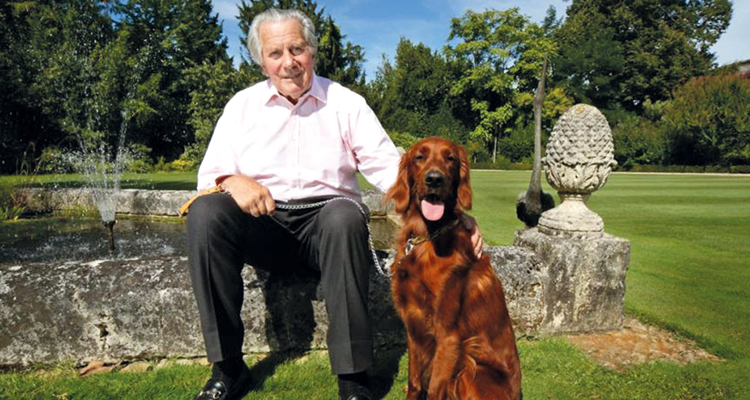7 July 1930 – 18 January 2022
The last male descendant of a great Anglo-Irish wine-making family in Bordeaux, Anthony Barton loathed the tendency for fine wine to be treated as a financial investment rather than something to be drunk and enjoyed.
Barton owned two of the leading classified growths — Châteaux Léoville Barton and Langoa Barton. He was also a roving ambassador for the promotion of Bordeaux throughout the world. A tall, dapper and clubbable man, he had one of the highest profiles of any of the leading Bordeaux wine owners. He was also one of the few to live in Bordeaux full time in the family château.
Anthony Frederick Barton was born in 1930 at Straffan House in Co Kildare, which was built in 1832 by Hugh Barton. Growing up in Ireland, Barton rarely encountered wine, as his parents preferred beer and whisky. After attending Stowe School in Buckinghamshire, he studied modern languages at Jesus College, Cambridge, for two years before being asked to leave for not showing “sufficient academic disposition”. His elder brother Chris was the heir to Straffan, but when their father sold it in 1949 most of the money went to pay off debts and Anthony moved permanently to Bordeaux.
Ronald Barton did not permit his nephew to work at the wine estates, instead placing him in the négotiant business of Barton & Guestier, which had been founded by Hugh Barton in 1802. Ronald Barton told Anthony to forget the idea of working in the vineyard because “the vineyard is where we lose money and the négotiant office is where we make it”. Even here, he was not responsible for the sale of either Léoville Barton or Langoa Barton, but made money by selling “off-dry” white to the Finnish wine monopoly. He conceded that “it was fairly nasty stuff, but they couldn’t get enough of it”.
The cellar at Langoa Barton, meanwhile, had a vast range of vintage bordeaux and champagne and after consuming different bottles of the magnificent 1900 vintage he developed a passion for bordeaux. However, he hated life in the region until he met Eva Sarauw, who was a Danish nanny. He married her in 1955.
Eventually, Barton & Guestier was partly sold to Seagram, but Barton did not develop a good working relationship with the new dominant partners and he was sacked in 1967. He immediately formed a company called Les Vins Fins Anthony Barton, which specialised in selling the leading bordeaux wines. To make matters worse, due to an earlier binding contract, he was not allowed to sell his family wines until the late Seventies.
This coincided with his daughter Lilian joining him in the business. To his continued frustration, there was still no planned handover of the estate, so it was only after the intervention of Ronald Barton’s bank manager that he grudgingly handed over control to Anthony in 1983, thus avoiding crippling inheritance and taxation issues. It had taken 30 years for Anthony to have any say in the production of the two wines.
In 2007 Barton was chosen as Decanter magazine’s ‘Man of the Year’ and in 2019 the Wine Spectator, America’s leading wine magazine, named his 2016 vintage of Léoville Barton as ‘Wine of the Year’. Apart from improving the overall quality of the wine, the other important development was deliberately charging less than his rivals for his en primeur offerings for new vintages. He commented that too many vintners in Bordeaux equated price with prestige but said that was not a game he wished to play. “I don’t consider our wines underpriced. I don’t want to play this game of always competing with my neighbours. That’s all about vanity and doesn’t help the image of Bordeaux. If Léoville Barton seems cheaper than many other top second growths, it doesn’t bother me. We’re making a very good living as it is. How many new cars can anyone buy after each vintage?”
Perhaps learning from his treatment at the hands of his uncle, he arranged for the transfer of his estates to his daughter Lilian some years ago, his son Tom having died in a road accident.
In 2011 she and her husband, Michel Sartorius, purchased Château Mauvesin Barton, in the adjoining Bordeaux region of Moulis-en-Médoc. Their two children, Mélanie and Damien, are involved in running the Barton estates, making them the tenth generation of Barton descendants to be involved in the Bordeaux wine trade.
Obituary from The Times

